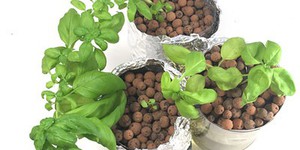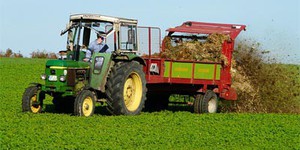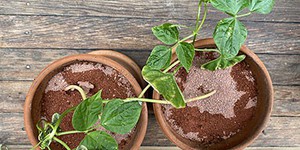Others Like “Learn About Aquaponics” (top 20 results)
|
What do plants need to grow? Most of us would answer that they need light, air, water, and soil. But by using a process called hydroponics, you can grow plants without soil! How does it work? Try this project and see for yourself!
Read more
We are all familiar with the nursery rhyme, "Rain, rain, go away, come again some other day...", or
the song "Singin' in the Rain." Numerous songs and stories describe our feelings about rain. Why so many?
Because we humans understand how important rain is to our well-being. Rainfall, as part of the
water cycle, brings water back to Earth that had previously evaporated or transpired
from the surface. When water vapor in the atmosphere condenses into clouds and falls back to Earth as rain,…
Read more
When you go to the beach, you may not know if the beach is natural or man-made. The popularity of sandy beaches prompted developers in the past to bring in sand to cover rocky shorelines and turn them into more popular sandy beaches. However, the actions of the tides, currents and waves carried the extra sand out into the reef, endangering the reef and the creatures living on it. You can use a water table to conduct experiments with sand movements and reefs. How is sand moved by water? How…
Read more
Mushrooms are not plants, but are fungi. Fungi include mushrooms, molds, and lichen. They do not produce seeds to reproduce like some plants. Fungi produce spores, like more primitive plants do. The spores of a mushroom are contained in the tiny folds around the stem underneath the mushroom cap. Different species of mushrooms have different types of spores, with different colors and different patterns of folds. You can make mushroom prints by removing the stem from a mushroom and placing the…
Read more
Many people routinely use fertilizer for crops, gardens, and lawns. What people don't know is that each time they apply fertilizer, the fertilizer seeps through the soil into the water table. This can eventually lead to the contamination of a local water source, like a stream, pond, lake, bay, or ocean. This is an especially big problem for agricultural practices that frequently use large amounts of fertilizer on fields that are connected by irrigation channels. The run-off of fertilizer…
Read more
Every spring, gardeners around the world get ready to plant their summer gardens. They turn the soil over in their garden plots and add nutrients to the soil. Then they plant their seedlings and wait for nature to provide a bounty of fruits, vegetables, and flowers. But nurturing the garden doesn't stop there. In order to get lots of fruits and vegetables, the gardener must eliminate factors that can hurt the plants. Sometimes, chemicals in the soil from other plants and trees can hurt a…
Read more
Do you know what plants need to grow? Sure, they need soil, water, and sunshine.
Everyone knows that. But here's a secret: they also need nitrogen. Plants use nitrogen to make DNA in their cells and
the proteins that lead to healthy stems and leaves. The problem is, although the Earth's
atmosphere is made up of 78% nitrogen, the form of nitrogen found in the atmosphere cannot be used by plants.
So how do plants get their nitrogen? Either through nitrogen deposits in the soil, or through…
Read more
To be able to live on Mars, humans need breathable air, clean water, and nutritious food. Spacesuits can provide oxygen to breathe, ice on Mars can be a source of water, but how could we get nutritious food? Today's astronauts bring food with them. But a manned trip to Mars would require food that was either successfully grown in space or on Mars, as taking the extra weight of food for such a long time—it takes 6–9 months one way—is just too costly. In this project, you will…
Read more
When pesticides are applied to protect crops, run-off of potentially harmful pesticides is a major problem. Can water plants such as hardstem bulrush, common cattail, parrotfeather and smooth scouring rush promote pesticide breakdown? If so, diversion of irrigation run-off into plant-filled ponds could help reduce pesticide pollution. Mix malathion at 12.5% of the recommended application strength (to simulate dilution by rain or irrigation water). Use 5-gallon buckets for testing various…
Read more
Everybody knows that worms are good for the soil, but not everybody knows why. Here's a project that investigates just one of the ways earthworms improve the earth. Would earthworm castings (or earthworm manure) help your plants prosper and flourish? If so, how much should you use?
Read more
|
Explore Our Science Videos
3D Printing with Icing (no 3D printer required!)
Lift Ice with Yarn STEM activity
How Far Can a Sneeze Go?












